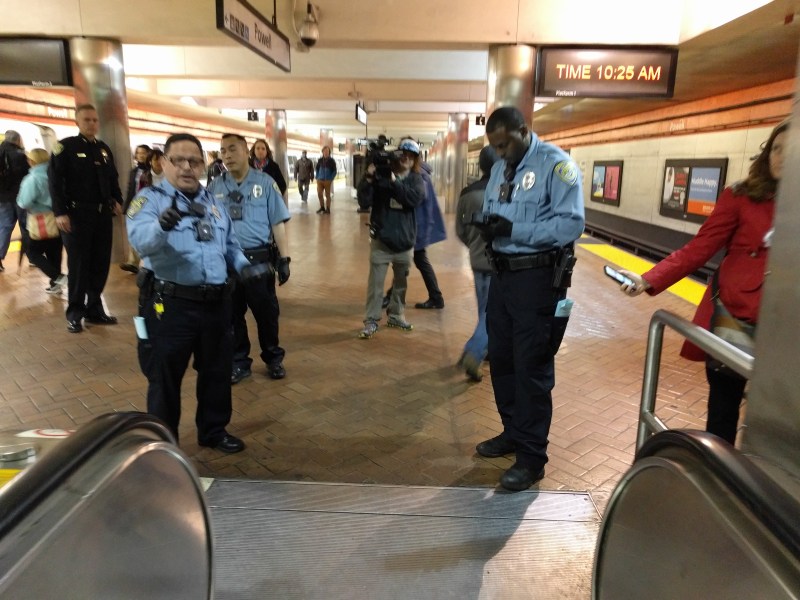A bill currently on the governor's desk, A.B. 819, offers an opportunity to decriminalize transit fare evasion. Governor Newsom should sign it so that California can replace punitive measures with more equitable approaches.
Current California law penalizes a failure to pay a $2.50 bus fare with a fine; a third infraction carries a misdemeanor charge and the potential of incarceration for up to ninety days, and/or hefty fines ranging from $250 to $400. The fines raise concerns, given that nearly forty percent of adults would have trouble covering a $400 emergency expense.
The juxtaposition with other types of violations within the state's legal framework is telling. Consider, for instance, traffic violations such as speeding or having an expired vehicle registration. These offenses do not carry the same severe criminal consequences as fare evasion. Instead, they typically result in the imposition of monetary fines.
This discrepancy raises a fundamental question: Why is the punishment for fare evasion on par with offenses like assault or driving under the influence? The need for a reevaluation of this system is evident when we consider the relative levels of danger posed by infractions such as fare evasion.
Like many of my fellow Californians, I've encountered individuals struggling with homelessness, young students rushing to make it to school, and low-income workers racing against time to get to their jobs. Each of them, at one point or another, faced the impossible choice between paying for a bus fare or risking legal trouble. Up to forty percent of city residents evade the fare at least once a year due to issues such as unavailable ticket machines or broken farecards. Stories like that of Mr. Zaniewski, an executive who, while possessing the means to pay the fare, found himself in a rush to catch his train, exemplify this issue.
The discriminatory nature of fare enforcement cannot be ignored. Studies show fare evasion enforcement disproportionately impacts Black individuals and sometimes serves as a pretext for unrelated charges. For example, 46 percent of citations on BART were given to Black riders despite composing twelve percentof riders between July 2018 and June 2019. Similar trends hold across agencies such as the New York Metro and DC Metro.
Furthermore, fare enforcement can turn deadly. From New York to Los Angeles to Washington D.C. and the San Francisco Bay Area, there are documented cases of fare enforcement that have resulted in police murder or unjust deportation, such as the story of Deion Fludd, whose life was taken by the police over an unpaid fare.
Dispelling fare evasion enforcement myths is crucial. It doesn't prevent crime; it simply checks payment, without addressing criminal tendencies or ensuring safety. It doesn't screen for weapons. Additionally, it diverts resources from vital safety concerns. Agencies employ varying approaches from transit police to code enforcement staff, with expenses ranging from moderate to exorbitant. Fare evasion rates are relatively low, generally between three to fifteen percent of riders depending on the transit agency and time period, compared to the human and financial costs incurred by enforcement. For instance, in 2019, New York proposed hiring 500 MTA police officers at a cost of $249 million over four years, partly to collect fare revenue that only added up to $200 million over the same period.
Finally, enforcing fares through local courts places a strain on administrative entities, as a substantial portion of fines go unpaid. For instance, in 2018, BART issued 6,800 proof of payment citations, of which ninety percent of people did not pay.
Moreover, a 2008 SFMTA press release notes that the Superior Court, which processes these citations, was confusing and cumbersome for SFMTA customers and employees. Court fees were challenging to track, and SFMTA had limited capacity to assist customers in this process. It is evident that resources should be redirected away from criminalization towards initiatives that bolster public safety, such as unarmed outreach teams and transit ambassadors.
In a state that prides itself on progressive ideals, we must confront the fact that these punitive measures perpetuate inequality and discrimination. These injustices are not isolated but systemic, demanding immediate attention. San Francisco Muni's decision in 2008 to decriminalize fare evasion has yielded promising results, setting an example for our state. Other transit agencies like TriMet and King County Metro have also embraced equity-based approaches. Further, 56 transit agencies in California have no enforcement policy for fare evasion.
A.B. 819 offers California the opportunity to decriminalize fare evasion, replacing punitive measures with equitable approaches such as policies that provide discounted or free tickets to low-income riders while emphasizing compassionate compliance.
Haleema Bharoocha is a Policy Advocate at the Anti Police-Terror Project
Editor's note: You can express support (or opposition) to bills on Governor Newsom's desk. On his website, click on "Contact" on the top right corner. On the drop-down menu, click "Contact" again and fill in the online email form that appears. Select the bill you want to weigh in on from the drop-down menus.






